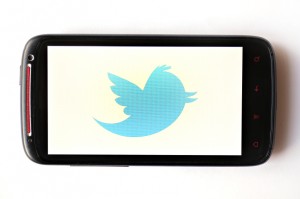Juan Dávila, BA Global Politics and International Relations alumnus (returning to Birkbeck to undertake an LLM in the next academic year), discusses resilience, virtual socialisation and productivity in these challenging times.
In the last decades much had been written about the relationship between humour and good management. Still, considering the current global pandemic crisis originated with COVID-19, it is necessary to revisit a few key concepts that help us to contribute to the preservation of the right spirit and motivation in our organisations. After all, institutions, either seeking profit or not, are human constructions, and human nature is and has always been resilient.
Having said this, hundreds of thousands of original videos were produced in the last months, proving that self-isolation can be positively a time of self-discovery, where humour is a crucial element to enhance mental health and to deal with constant mediatic bombarding. Like Roberto Benigni in ‘La vita è bella’, people use their creativity and imagination under the worse circumstances.
Furthermore, a beneficial link between laughter and the boost of the immunological system had been traced as a result in scientific studies, since when we laugh our body produces substances like endorphins, adrenaline, serotonin, and dopamine that helps to relax our muscles and potentiate a feeling on mindfulness.
Once again, institutions, profit and non-profit, have in the last months made radical efforts to adapt their operations to the new circumstances affecting all type of practices and routines. Stress and anxiety are common symptoms that can later change the core of the organisation if they are not dealt with collectively. The challenges are indeed enormous, but also opportunities to be embraced.
But how can we apply humour to motivate our work environment? Like in any human interaction, speakers and listeners produce and exchange verbal and non-verbal communication. The effectiveness of communication is the base to reach mutual understanding. In that context, humour is an exciting tool to be used organically. Our difference with previous generations is that in times of social distance, much of our daily interaction is done online through devices that can, fortunately, allow us to retransmit image and voice in real-time.
In terms of effective communication, being funny is always about taking risks, considering the timing and other people points of view—also, project confidence and intellectual agility. Co-workers can eventually feel stimulated to work with someone that knows how de-dramatise the complexity of some operations. But, inappropriate jokes and remarks can undoubtedly cause the contrary effect and can eventually evidence incompetency. In any case, teamwork and good peer feedback are encouraged to safeguard fluent and effective communication, that at the end impact on the work environment.
When the dog is barking, or a child is crying in the middle of an urgent conference call, some things are indeed beyond our control. We have all been in similar situations. In these circumstances, a laugh can help to humanise these kinds of situations. It is essential to always take into consideration that the best humour is still coming from laughing about ourselves. In this context, leaders with a sense of humour are more approachable, helping to build up trust and boost the morale of the team.
Simple team building dynamics can also motivate people and encourage productivity. Here some tips and ideas:
- If you want to keep your privacy at home, make sure that you use a professional virtual background. You can have a few of them to change accordingly to the situation.
- You can all agree to wear a particular colour or dress code to attend a meeting. For example: ‘Red on Tuesday, and Green on Fridays’
- Celebrate small steps or achievements is also a way to show appreciation to your colleagues.
- Sharing ideas about what to do during social distance can also help to motivate people.
- When working with colleagues in different time zones, it is vital to empathise. It could be the beginning or the end of the day for them
- Also, working with people using different languages, it is crucial to formulate ideas and questions using simple vocabulary to facilitate understanding.
Moreover, being positive will not guarantee to succeed, but being negative will ensure that you will not. So, let us be the reason why someone smiles today.
Further information:




